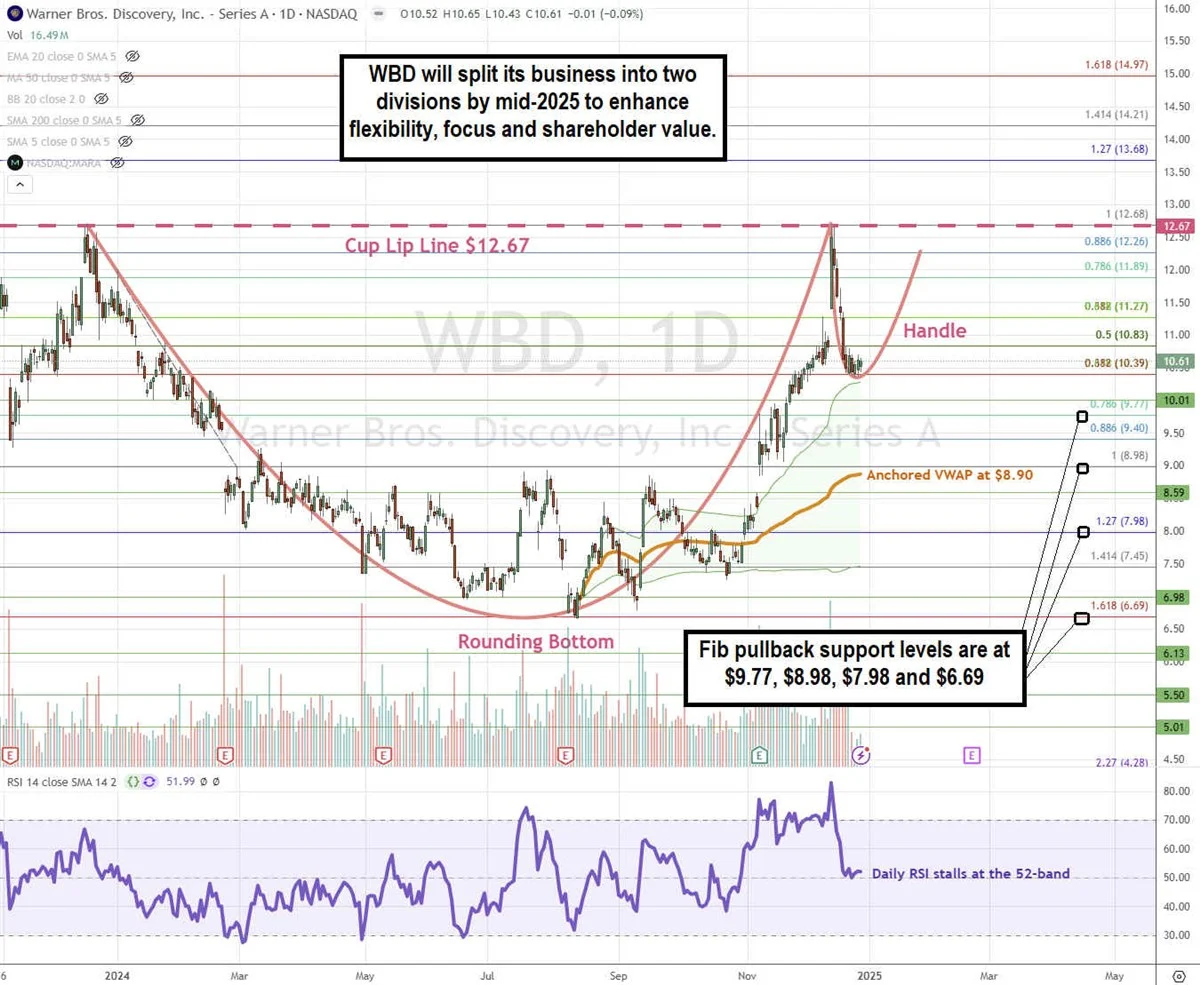Warner Bros. Discovery (NASDAQ:WBD) is a major entertainment and media company that owns high-profile entertainment brands and IPs. The consumer discretionary sector Goliath was formed through a merger of the AT&T (NYSE:T) spin-off of WarnerMedia and Discovery Inc. in April 2022. For the telecom giant AT&T, it was a way to offload $43 billion in debt and receive $40.4 billion in cash on the deal to refocus on its core telecommunications business.
Discovery was able to massively scale up its content and IP under the leadership of its CEO David Zaslav in order to compete with streaming giants Netflix (NASDAQ:NFLX), Amazon (NASDAQ:AMZN) Prime and Walt Disney (NYSE:DIS) Disney+. While the merger went off without a hitch, the execution and integration of the two companies were problematic as its stock price cratered over 60% from its post-merger high near $27.50.
Missteps and Mishaps Along the Way
While the merger had high hopes for growth and cost synergies, the company has had many speed bumps along the way, leading to layoffs, box office disasters, budget cuts, cancellations and closures. The company has a treasure trove of channels, networks, studios and IPs, including the DC Universe, consisting of the most recognized superheroes like Superman, Batman and Wonder Woman. In an effort to right the ship, the company has announced a significant restructuring of the company on Dec. 12, 2024.
Corporate Restructuring: And Then There Were Two
Warner Bros. Discovery announced it would implement a new corporate structure where the company will be split into two core operating divisions (down from the previous three).
The Global Linear Networks division will house its linear traditional television networks, including Discovery Channel, CNN, OWN, TLC, TNT, TBS, Travel Channel, Animal Planet, Food Network, HGTV, etc. This segment will focus on maximizing profits and free cash flow from the established channels in order to help in the deleveraging efforts.
The Streaming & Studios division combines its streaming platforms, including HBO Max Discovery and its television and film production studios, including Warner Bros. Pictures, Television and Animation Group, New Line Cinema, Castle Rock Entertainment and DC Studios. This segment will be the growth driver, generating solid returns on its investments in content creation and streaming.
The new corporate structure is expected to be completed by mid-2025. CEO David Zaslav stated, "We continue to prioritize ensuring our Global Linear Networks business is well positioned to continue to drive free cash flow, while our Streaming & Studios business focuses on driving growth by telling the world's most compelling stories.
Our new corporate structure better aligns with our organization. It enhances our flexibility with potential future strategic opportunities across an evolving media landscape. It helps us build on our momentum and creates opportunities as we evaluate all avenues to deliver significant shareholder value."
The Benefits of the New Corporate Structure
By splitting the company into two divisions, Warner Bros. Discovery hopes to grow its efficiencies and productivity moving forward. The benefits include:
- Unlocking Value and Focus: The new structure provides clarity of focus and unlocks value. The linear networks division is focused on maximizing profits and cash flow with its established franchises. The steaming and studios segment will be able to make riskier content investments with a focus on growth maximizing ROI.
- Strategic Flexibility: Splitting into two distinct and identifiable divisions enables each division to adapt independently to the evolving media landscape. It enables them to even consider potential spin-offs, divestitures, acquisitions and licensing arrangements without red tape.
- Streamlined Operations and Decision-Making: The new structure sets clear lines of responsibilities, goals and accountability. The streamlined operations facilities more effective and faster decision-making with less red tape.
For investors, the potential to spin off pieces or all of its divisions can enhance shareholder value since the company has a mountain of well-known brands and IPs. It enables the company to be valued by the parts rather than lumped in as a whole. While the trend of bundling streaming services is growing, Warner Bros. Discovery's strategy is to unbundle its components so the market can better price their value.
WBD Stock Attempts a Cup and Handle Pattern
As the name states, a cup and handle pattern is comprised of 2 separate patterns: a cup and a handle. The cup is formed as a stock peaks a swing high, marking the lip line as shares fall to a swing low, form a rounding bottom and rally back to retest the cup lip line. After the cup pattern completes, the stock rejects again from the lip line to form a shallow pullback before turning back up again to retest the cup lip line, forming the handle. The cup and handle breakout occurs if the stock can breakout above the cup lip line on the handle bounce and third attempt.
WBD formed the cup lip line at $12.67 and sold off to a swing low at $6.69. It formed a rounding bottom and staged a rally all the way back up to the $12.67 cup lip line to complete the cup pattern. Shares fell back down to the $10.39 Fib support as it attempted to bounce to form the handle. The daily anchored VWAP support is rising at $8.90. The daily RSI is stalling at the 52-band. Fibonacci (Fib) pullback support levels are at $9.77, $8.98, $7.98 and $6.69.
WBD's average consensus price target is $11.44, implying a 7.83% upside and its highest analyst price target sits at $18.00. It has 10 analysts' Buy ratings and 12 Hold Ratings. The stock has a 4.27% short interest.
Actionable Options Strategies: Bullish investors can wait for WBD to pull back and consider using cash-secured puts at the Fib pullback support levels to buy the dip. If assigned the shares, then writing covered calls at upside Fib levels executes a wheel strategy for income opportunities while hedging the downside by the premium received.
